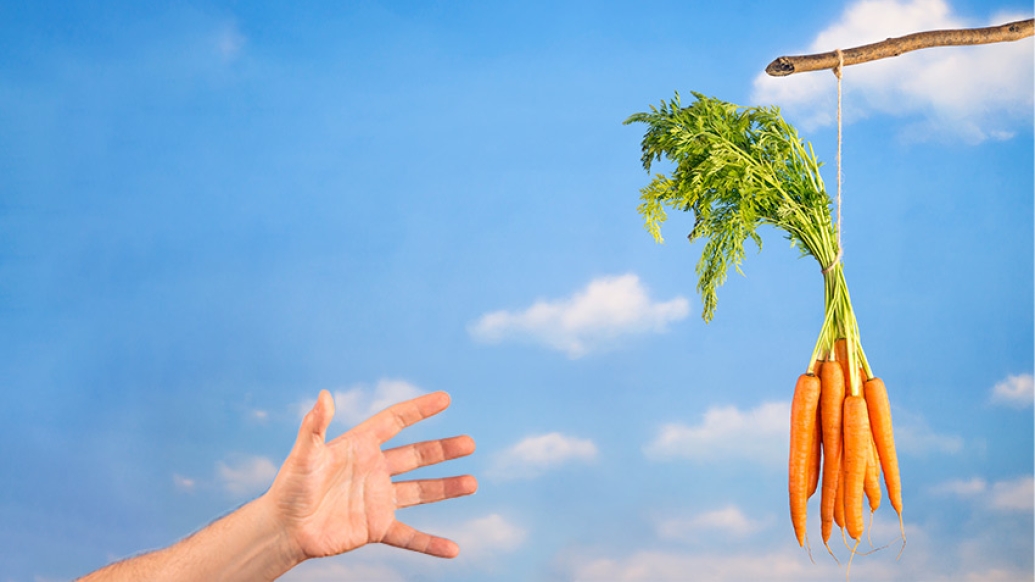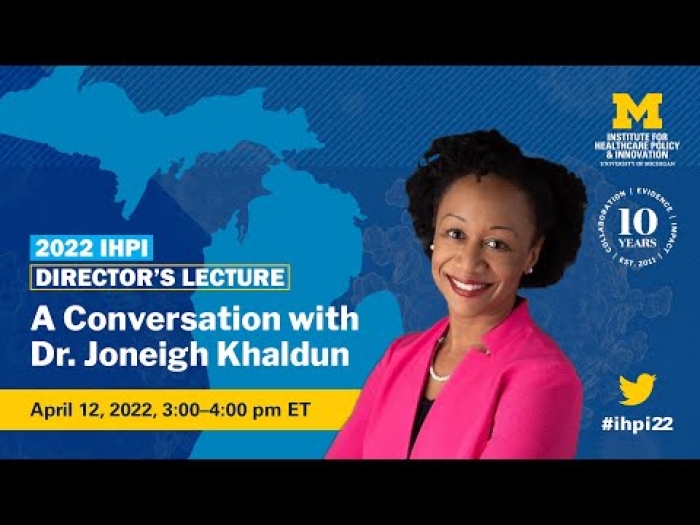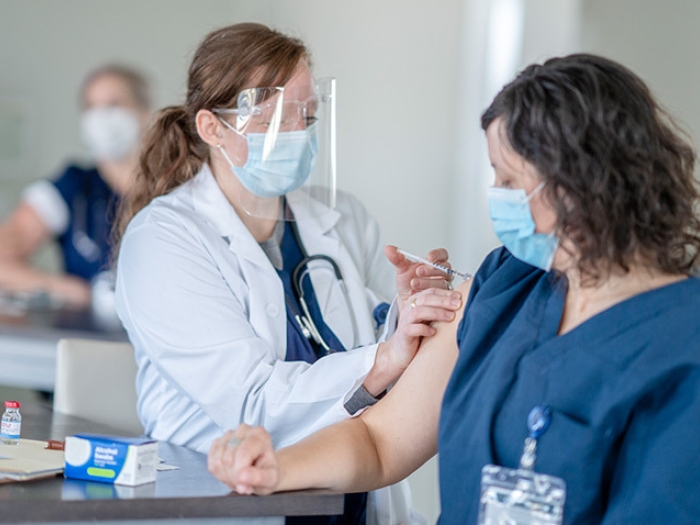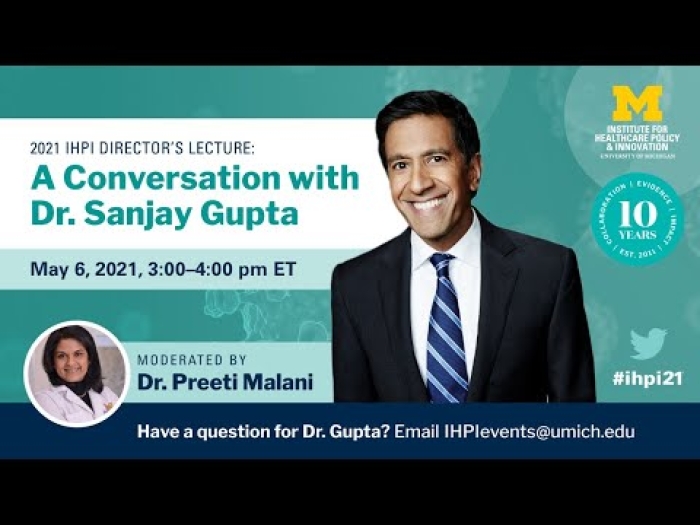Lessons from this year’s vaccine drive could help future prevention campaigns, says expert.
11:29 AM
Author |

Free donuts. A shot and a beer. Shopping discounts. Baseball tickets. Days off from work. A free chance to win a million dollars, a dream vacation or a full college scholarship.
All of a sudden, Americans find themselves bombarded with prizes, rewards, incentives and potentially huge payoffs for getting vaccinated against COVID-19.
If that's what it takes to get more shots in arms, A. Mark Fendrick, M.D., is all for it. He truly believes that lotteries, raffles and giveaways will help persuade many of the hesitant, the uncertain and the procrastinating to get immunized.
But states and companies should make sure to reward only those who are fully vaccinated, he said, and also reward those who rolled up their sleeves and got vaccinated before the incentive programs were put in place.
The University of Michigan professor and primary care physician has spent decades studying what it takes to get more people to do what's right for their health – especially those who need to be persuaded.
His team's work helped ensure that the COVID-19 vaccine would be free to anyone in the United States, regardless of their insurance status. The team's research at the Center for Value-Based Insurance Design has also informed government and insurer efforts to keep cost from getting in the way of services like mammograms and colonoscopies – the ones that give the biggest preventive bang for the health care buck.
But with 1 in 3 American adults still unvaccinated against a disease that has sickened at least 33 million of their fellow citizens, and killed nearly 600,000 of them, it's time to go beyond free, he says.
"We've gone beyond free and provided financial incentives for decades for certain high-value health care services such as wellness and smoking cessation programs, so this is not new," said Fendrick, a professor of internal medicine at the U-M Medical School and general internist at Michigan Medicine. "The success of these programs depends on the ability to tailor incentives to the desires of the people who are most likely to be persuaded."
Meanwhile, the flip side of vaccine rewards is vaccine mandates by employers and others, which may start rolling out soon now that employment law has been clarified.
"This is what's called a 'carrot and stick' approach, and I'm a carrot guy," Fendrick said. "I think that properly designed carrots, such as lotteries, will work as well as sticks. From what I have seen, carrots seem to be the predominant approach being used by states and public and private organizations."
Tailoring the reward
For his 87-year-old mother in Pennsylvania, the promise of a free glazed donut in exchange for showing her vaccine card when she ventures out to a doctor's appointment is a sweet reward – but she was going to get vaccinated anyway, Fendrick said.
But for a person who can't afford to miss work if the vaccine makes them tired or achy for a day or two, all it might take is their employer's offer of a $50 or $100 reward, or a promise that they won't make them use up one of their few sick days for vaccine-related symptoms.
The success of these programs depends on the ability to tailor incentives to the desires of the people who are most likely to be persuaded.A. Mark Fendrick, M.D.
Meanwhile, the promise of a big payoff – a priceless experience, an expensive trip or good old cash – may be needed to tip the balance for others.
And the prize that might entice a sports fan to get vaccinated is different from the prize that might persuade a music lover, a person who dreams of a luxury cruise or a hospital worker who hates the daily hunt for parking in the city where they work.
Learning from lotteries
As soon as COVID-19 shots became available in December, Fendrick – anxious about vaccine uptake – started looking at the research on incentive programs such as lotteries, and specifically the demographics of who buys lottery tickets.
"It turns out that there's a lot of overlap between the people who play state lotteries most often, and the people who are most likely to tell pollsters they're waiting before getting the vaccine or aren't planning to get it at all," he said.
This includes people of many political affiliations, rural and urban populations, education and income levels and racial and ethnic backgrounds, Fendrick is quick to note.
SEE ALSO: How to Make Sure People Get the Second Dose of the COVID-19 Vaccine
Lotteries have another advantage to the states and companies that have decided to run them: A predictable and fixed cost. Once the entry qualifications and prizes are set, the lottery costs the same no matter how big the pool of entrants grows.
Open-ended giveaways, on the other hand, have unpredictable costs – though donut shops, grocery stores and bars may accept that as the cost of getting a customer in the door so they can sell them other products to go with their freebie.
Starting from an existing pool of people – everyone who's on the voter rolls in a particular state, every employee in a company or institution, or everyone who gets vaccinated at a certain company's stores by a certain date – is easier to manage.
But, Fendrick said, COVID-19 vaccine lotteries should also use the principle of "lottery regret."
This has been shown to motivate people to buy state lottery tickets repeatedly so they don't miss the day when their lucky numbers get picked, or to stick around to the end of an event so they don't miss out on their chance to win a raffle prize that they must be present to win.
In other words, people chosen in a COVID vaccine lottery should have to prove they're fully vaccinated before they can claim their prize – and lottery administrators should say how many potential winners lost out because they weren't fully vaccinated.
It's similar to what the Centers for Medicare and Medicaid Services now allows Medicare Advantage insurance plans to do under the ongoing Value-Based Insurance Design model test. These innovative plans can offer people over 65 food and transportation assistance to incentivize taking part in preventive care – and cash incentives up to hundreds of dollars if they complete a certain number of health related activities.
Looking forward
Even as the giveaway and lottery spree ramps up, Fendrick said it's important to study exactly who responded to the different enticements, and what it took to get different groups to get vaccinated if they weren't already.
Employers should be surveying their employees anonymously right now to find out what's holding some of them back from seeking vaccination, or what motivated some to roll up their sleeves, and acting on that with targeted programs for COVID-19 vaccination, flu vaccination and more, he said.
The potential to reduce illness-related absences, and costs to the company's insurance plan, could far outweigh the cost of an incentive program.
This information could be crucial in designing future prevention programs, and reducing barriers further.
"This moment gives us an incredible opportunity not only to increase COVID vaccination, but to find out what types of incentives and rewards work for the kind of things we've wanted people to do for decades," he said.

Explore a variety of healthcare news & stories by visiting the Health Lab home page for more articles.

Department of Communication at Michigan Medicine
Want top health & research news weekly? Sign up for Health Lab’s newsletters today!





